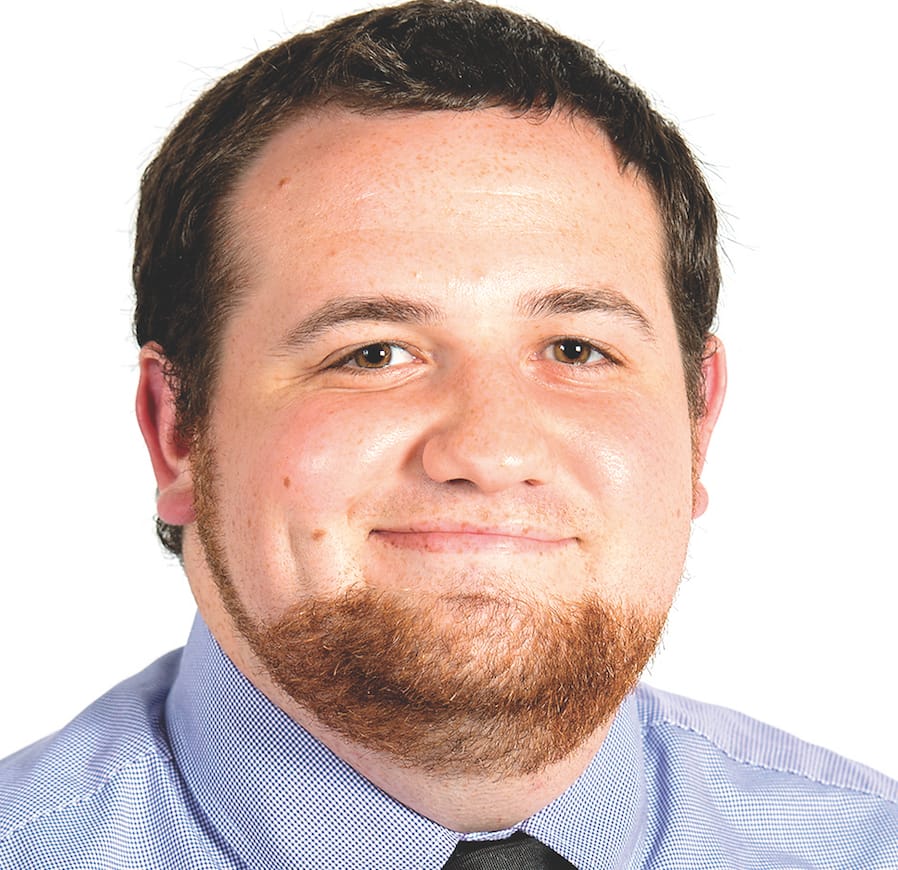he spring football format in the Colonial Athletic Association isn’t changing just because one of its members decided to opt out of the unconventional campaign.
On Monday, Towson University announced it wouldn’t participate in the league’s spring season.
“It does not impact how we’re planning to proceed,” CAA commissioner Joe D’Antonio told the Daily News-Record.
D’Antonio said the CAA should have its schedule finalized by later this month or in early November.
Last month, the conference released its format for the season, which was postponed from the fall to the spring due to the coronavirus. The league will be split into two divisions and each school will play six conference games within its division.
“We had not announced yet what the makeup of those divisions were going to be,” D’Antonio said, “but we are still planning on the exact same format of two divisions.”
Towson’s choice to sit the spring out, though, leaves 11 participating league members instead of the usual 12. So the CAA would forge ahead with unbalanced divisions, pairing six schools in one division and five in the other.
Before Towson’s decision to exit, teams were already going to play one home-and-home with one opponent in their division. Now it’s likely the schools in the division with five members would add a second home-and-home to their slate in order to play all games within the division.
“We’re looking at a couple of different options as to how it would work,” D’Antonio said, “but you can do the math and understand that depending on how things are set up that it could certainly be the potential based on a divisional setup.”
Towson is the eighth FCS program to decline the option of playing in the spring. Across the country, Abilene Christian, Campbell, Central Arkansas, Eastern Kentucky, Houston Baptist, Sacramento State and Stephen F. Austin have also decided to not to participate in spring football. But six of those other seven are playing a schedule in the fall while Towson isn’t.
The most similar situation to Towson’s is FBS member Old Dominion’s circumstance. Old Dominion chose not to play this fall even though its league, Conference USA, is playing.
“In today’s world, there are no easy decisions anymore, everything is a long, planned out decision,” Towson coach Rob Ambrose said in a press release. “The first thing we did is we took a step back once we knew there was going to be a plan for this, and we asked the players and we listened. It is amazing how aware, broad-minded, forward-thinking and how intelligent our student athletes really are. We surveyed the guys, more than 75 [percent] of the team did not want to trade a full season next year for a six-game season this spring. After listening to the players, I could not come up with a good reason on why we should do this.”
Towson athletic director Tim Leonard said: “With football being a high-contact sport, the student athletes and coaches agree that potentially sacrificing a normal fall season for a shortened spring year is not the safest course of action.”
D’Antonio said he was aware of the decision Towson made before the school’s announcement and understands it, but that there aren’t any other CAA Football programs that have opted out at this time.
“It’s such a fluid situation that we’re dealing with at the present time,” D’Antonio said, “and like any and all matters dealing with COVID-19, it’s tough to answer any question like that in a matter of absolutes.
“But I don’t necessarily anticipate any other team that would bow out right now, but it’s very difficult to predict as we move toward the beginning of the season and what things could actually look like if some team were to have an outbreak or something. You just don’t know, so it’s tough to answer that in an absolute standpoint.”
Some CAA teams have already started fall practices in preparation for the spring season like James Madison, New Hampshire and Richmond.
“From the standpoint of everybody’s mental well-being,” D’Antonio said, “we’re certainly happy that some of our programs have been able to return to the field and be able to start participating in activities.”
